Ukraine-Russia war: Russian forces relocate to Soledar, in eastern Donetsk
A Ukrainian official has described Russia’s latest show of force as a “difficult phase of the war”, as “hostilities continued” in the area.
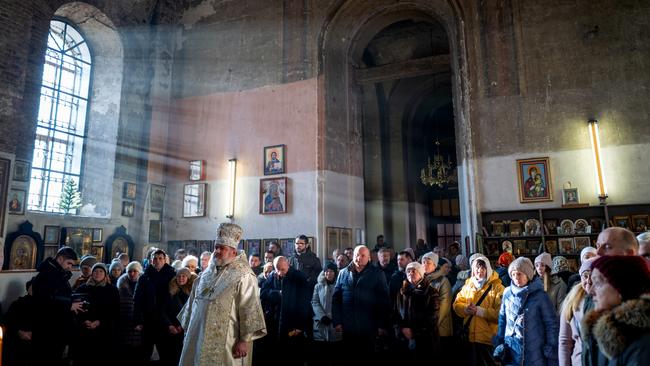
World
Don't miss out on the headlines from World. Followed categories will be added to My News.
Ukraine said on Friday it was resisting a “high intensity” Russian offensive in Soledar, a town in the eastern Donetsk region where Kyiv claimed Moscow was deploying more troops.
“It was hot overnight in Soledar. Hostilities continued. The enemy relocated almost all of its main forces to the Donetsk front and is maintaining a high intensity offensive,” Deputy Defence Minister Ganna Malyar said, adding this was a “difficult phase of the war”.
The Kremlin has made capturing the industrial Donetsk region its primary objective after nearly one year of fighting, having been forced to abandon more ambitious goals like seizing the capital Kyiv and ousting Ukraine’s government.
The Russian mercenary group Wagner claims to have spearheaded the offensive for Soledar – a salt mining town with a pre-war population of around 10,000 people – and announced earlier this week that their forces were controlling Soledar.
But both the Kremlin and the Russian defence ministry earlier this week urged caution and said fighting in Soledar was still ongoing.
The US-based Institute for the Study of War, a military observation group, said in an analytical note Friday that Russian forces had likely captured Soledar on Wednesday this week.
“But this small-scale victory is unlikely to presage an imminent encirclement of Bakhmut,” it said, referring to a larger nearby town in Donetsk that Russian forces have been attacking for months.
KEY UKRAINE BATTLE REVEALS BIG PUTIN PROBLEM
Ukrainian President Volodymyr Zelenskyy said fighting was still raging in a key eastern frontline city that a Russian mercenary group earlier said it controlled.
The fate of Soledar in eastern Ukraine was uncertain after Russian group Wagner claimed it controlled the gateway town - but the Kremlin cautioned against declaring victory prematurely.
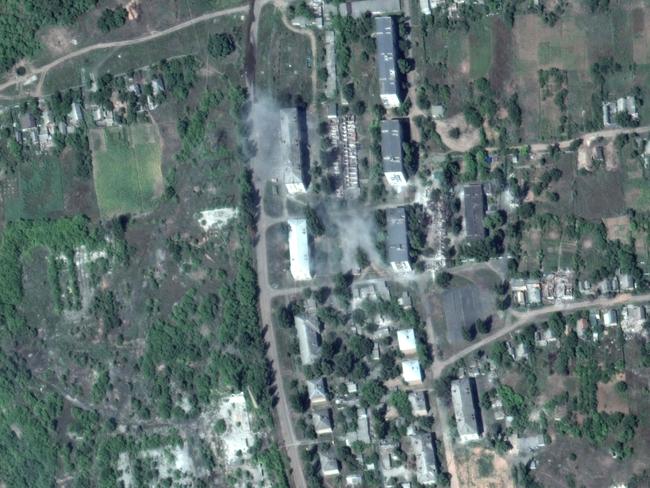
In his daily address, Mr Zelenskyy insisted that the front was “holding”.
“The terrorist state and its propagandists are trying to pretend to have achieved some successes in Soledar but the fighting continues,” he said.
Both Moscow and Kyiv have said the battle for Soledar has been long and brutal. If it did fall to Moscow’s forces, that would mark Russia’s first significant territorial gain in Ukraine in months.
The war-battered salt mining town in the eastern Donetsk region lies about 15 kilometres from Bakhmut, a larger urban hub that Russia has been trying to seize.
The head of Wagner group, Yevgeny Prigozhin, claimed that his forces had “taken control of the whole territory of Soledar” while “urban battles” were fought in the city centre.
Russian state news agency RIA Novosti published a photo it said had been taken in the salt mines of Soledar showing Prigozhin with armed fighters.
The Ukrainian military said the pictures were taken elsewhere. And the Russian defence ministry urged caution, saying it was best to wait for “official announcements”.
The BBC reported there have been long simmering tensions between the Kremlin and the Wagner group, with Prigozhin publicly criticising generals for being out of touch with the realities of the war in Ukraine.
Pro-Kremlin military bloggers have heaped praise on the group, further increasing tensions. One blogger thanked them for “the emotions you’ve given us tonight”.
MILITARY SHAKE UP
As the first anniversary of the war in Ukraine approaches, Russia’s president Vladimir Putin has replaced “General Armageddon” Sergei Surovikin in a wide-ranging shake-up of military leadership.
Surovikin, who took command just three months ago, was replaced by Chief of the General Staff Valery Gerasimov, head of the Russian military, in a move described by Moscow as “an increase in the level of leadership of the special operation”.
Russia’s defence minister Sergei Shoigu said the appointment was in connection with the “expansion of the scale of the tasks being solved” and “the need to organise closer interaction between the types and arms of the troops”.
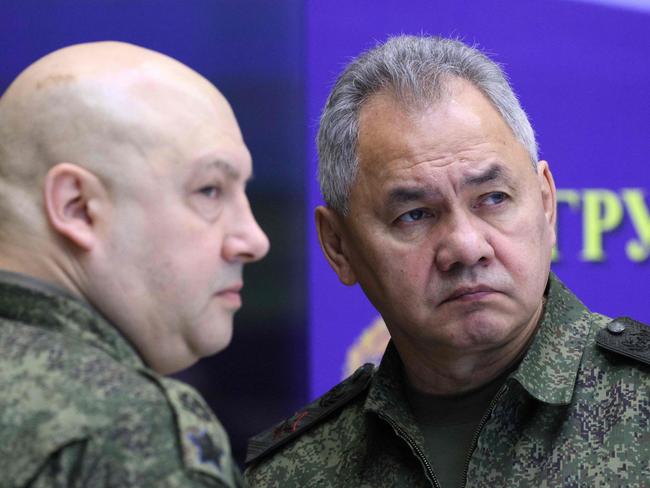
Surovikin, who earned his nickname of General Armageddon over the ruthless intervention in the Syrian War in 2017, will remain on as deputy.
His replacement, Gerasimov, is the highest-ranking uniformed officer in Russia’s military and is a veteran of the Second Chechen War.
CLUE THAT REVEALS PUTIN’S WAR PROBLEM
US and Ukrainian officials claim Russian artillery fire is done by a huge 75 per cent in some places, suggesting Russia is in a far weakened position than at the start of the war.
The possible reasons for the lack of firepower could be low supplies of MLR (Multiple Launch Rocket Systems), rationing to use later, or a change in tactics after encountering strong Ukraine air defence systems.
It comes as Russian strikes hit the eastern Ukrainian city of Kharkiv late Tuesday, the regional governor said, just hours after a surprise visit by the German foreign minister together with her Ukrainian counterpart
“Stay in the shelters. The occupiers are bombing again!” governor Oleg Synegubov warned on Telegram as several explosions rocked the city
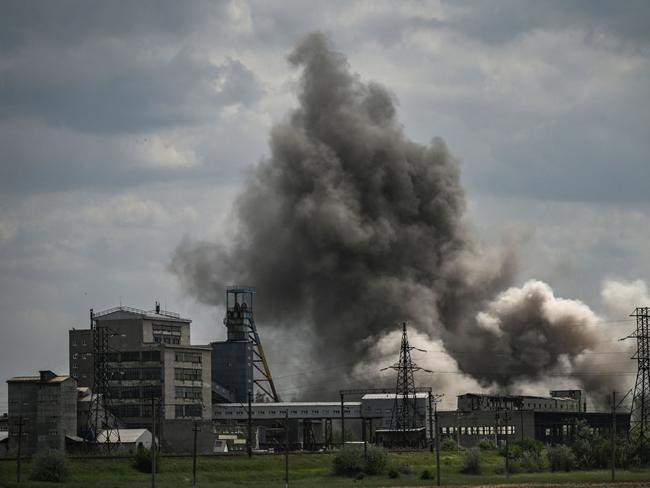
VILLAGE SEIZED
Russian-backed separatist forces in the eastern Donetsk region of Ukraine said on Monday they had seized a village near the key city of Bakhmut that Moscow has been trying to capture for months.
The village of Bakhmutske in “the territory of the Donetsk People’s Republic was liberated by the Armed Forces of the Russian Federation,” on Monday, read a statement from separatist authorities on Telegram.
AFP could not independently verify the claim.
The village lies northeast of Bakhmut, a winemaking and salt-mining city that used to have a population of 70,000 people and is now an epicentre of fighting.
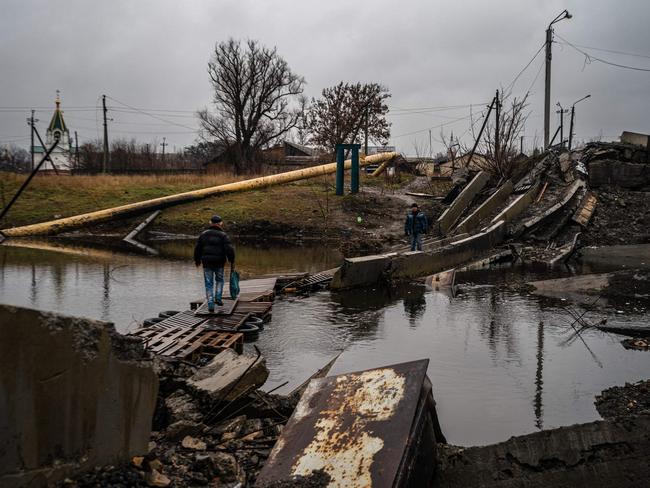
In a statement on social media, the Kremlin-linked mercenary group Wagner responded to the reports saying its forces had already “liberated” Bakhmutske last month.
The village is just outside the city of Soledar, also the scene of heavy fighting.
Separately, Wagner’s founder Yevgeny Prigozhin said on social media that Soledar was being stormed “exclusively” by the group’s units.
Observers of the conflict have pointed to competing ambitions of the Russian defence ministry, pro-Russian separatist forces that have held parts of Donbas since 2014 and Wagner, including the rising public profile of Prigozhin.
Ukraine’s President Volodymyr Zelenskyy said in his evening address Sunday that the area between Bakhmut and Soledar is “one of the bloodiest places on the front”.
In September, Moscow claimed to have annexed Donetsk and three other Ukrainian regions following referendums not recognised by Kyiv and the West.
UKRAINE EXPOSES RUSSIA ‘LIE’: SHOCK PRISONER SWAP
Ukraine has denied Russia’s claim that they killed 600 Ukrainian soldiers in an attack and labelled it as pure “propaganda”.
Moscow said they launched a “mass missile strike” in the eastern city of Kramatorsk had killed more than 600 Ukrainian forces, despite not providing any evidence to support their bold claims.
Russia said it was in retaliation for a Ukrainian attack on a Russian base that killed dozens of Russian soldiers on New Year‘s Day, however, the Ukrainian military says this is untrue.
“This is another piece of Russian propaganda,” a spokesman for the Ukrainian army, Serhiy Cherevaty, told the BBC.
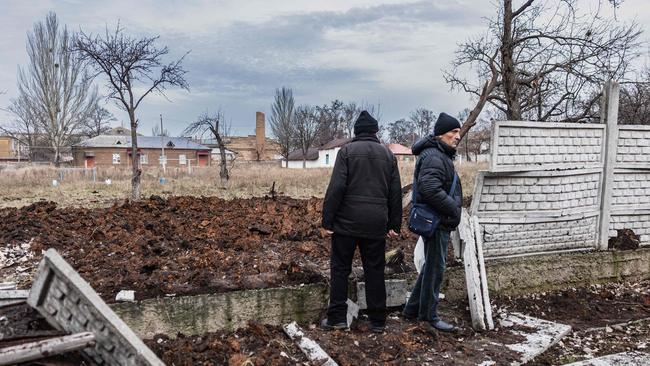
Russia‘s defence ministry said it had killed more than 600 Ukrainian servicemen in a strike on two buildings temporarily housing more than 1300 Ukrainian troops.
It called the attacks a “retaliatory strike” to avenge the deaths of 89 Russian troops killed in Makiivka which Ukraine says as many as 400 people were killed or wounded in that incident, while numbers into the hundreds have been given by Russian nationalists on social media.
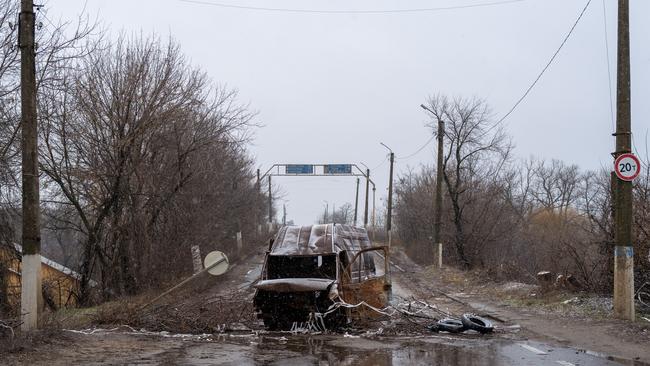
However, Moscow is yet to offer any proof of its claim about the Kramatorsk deaths.
The strikes happened near two school buildings – vocational schools number 28 and 47 – which match with the dormitory numbers provided by Russia.
However, there‘s no visual evidence that shows these two buildings were badly hit or that there has been mass deaths on the scale claimed by Russia.
PRISONERS OF WAR EXCHANGED BETWEEN RUSSIA AND UKRAINE
Russia and Ukraine have carried out a shock prisoner exchange on Sunday with a total of 100 soldiers returning to their respective home countries, according to authorities from both countries.
As a result of the negotiation process, 50 Russian soldiers captured by Ukraine were returned to Russia while 50 Ukrainian soldiers captured by Russia returned home.
“We returned the people who were captured at the Chernobyl nuclear power plant, as well as the defenders of Mariupol, the guys from the Donetsk direction, from near Bakhmut, as well as from Kyiv, Chernihiv, Kherson and other regions,” Head of the Ukrainian presidential office, Andriy Yermak, said in a statement.
“This is not the last exchange. Our task is to return all our people and we will fulfil it.”
This is the 36th exchange between Russia and Ukraine since the beginning of the full-scale Russian invasion, with 1,646 people — military and civilians — returned home to Ukraine, according to the Coordination Headquarters on the Treatment of Prisoners of War in Kyiv.
RUSSIA LAUNCHES DEADLY ‘RETALIATORY STRIKE’ ON UKRAINE
Moscow said on Sunday, local time, that its army had conducted a deadly “retaliatory strike” in the eastern Ukrainian city of Kramatorsk to avenge the deaths of 89 Russian troops killed in Makiivka, and former embarrassing losses in the conflict with Ukraine.
“More than 600 Ukrainian servicemen were killed” as a result of a strike on Kyiv troops stationed in two buildings in Kramatorsk used as barracks, the Russian defence ministry claimed in a statement, calling the attacks a “retaliatory strike.” AFP could not immediately verify the report.
On Saturday, local time, AFP journalists in Kramatorsk, which is located in the eastern region of Donetsk, heard at least four explosions before midnight.
Both countries marked Orthodox Christmas on Saturday.
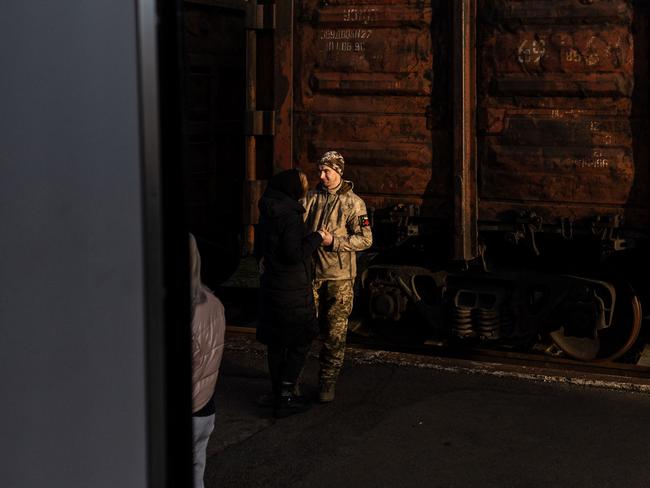
The Russian defence ministry did not say when exactly the strike had taken place but said that Russian intelligence had “over the past 24 hours” confirmed the points of temporary deployment of Ukraine’s armed forces in Kramatorsk.
More than 1,300 Ukrainian troops were housed in two buildings, Moscow claimed. Earlier Sunday, Pavlo Kyrylenko, the head of the Donetsk regional administration, said Russians launched seven rocket attacks on Kramatorsk.
He said that “an educational institution, an industrial facility and a garage cooperative” had been damaged and that there were no casualties.
In a New Year’s attack, Ukraine struck a building in the occupied eastern Ukrainian town of Makiivka being used as a barracks.
Russia conceded 89 troops had died, in what was the worst single reported loss from a Ukrainian strike.
Russian President Vladimir Putin had ordered a 36-hour ceasefire to allow Orthodox Christians to mark Christmas which is celebrated on January 7 in Russia and Ukraine.
The unilateral ceasefire ended at 11:00pm in Kyiv (2100 GMT) on Saturday.
UKRAINIANS CELEBRATE HOLIDAY AS FIGHTING CONTINUES
Ukrainians and Russians marked Orthodox Christmas on Saturday, as the 36-hour ceasefire ordered by Russian President Vladimir Putin ran its course with little sign the fighting had eased.
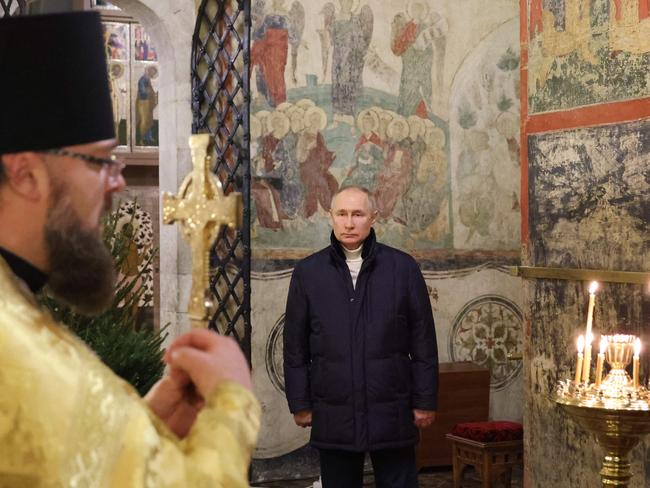
In Kyiv, hundreds of worshippers attended a service at the 11th-century Kyiv Pechersk Lavra as Metropolitan Epifaniy, head of the Orthodox Church of Ukraine, led a liturgy in the pro-Western country’s most significant Orthodox monastery.
In Moscow, the 70-year-old Russian President stood alone at a service at a Kremlin church, the Cathedral of the Annunciation, to mark Orthodox Christmas.
In stark contrast to the Ukrainian celebrations, images distributed by Russian state-owned agency Sputnik, showed Putin looking sombre and solitary.
Ukraine President Volodymyr Zelensky, in his evening address, said he was happy to see so many people attend the service on a day that “has already become historic for Ukraine, for the spiritual independence of our people”.
On the Orthodox Holy Day, “the world was once again able to see how false any words of any level coming from Moscow are,” he added.
“They said something about an alleged ceasefire … But the reality is Russian shells that again hit Bakhmut and other Ukrainian positions.”
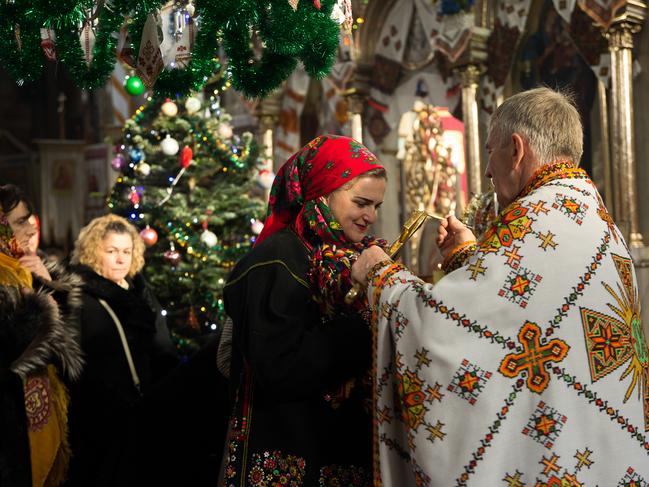
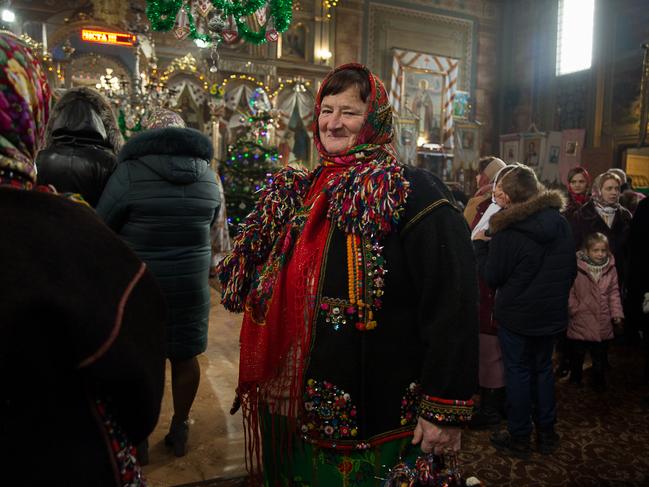
Ukraine had previously dismissed the ceasefire — due to last until the end of Saturday as a tactic by Russia to gain time to regroup its forces.
War-scarred cities in eastern Ukraine saw no significant let-up in the combat. AFP journalists in the town of Chasiv Yar south of the frontline city of Bakhmut heard heavy artillery fire throughout much of Saturday morning.
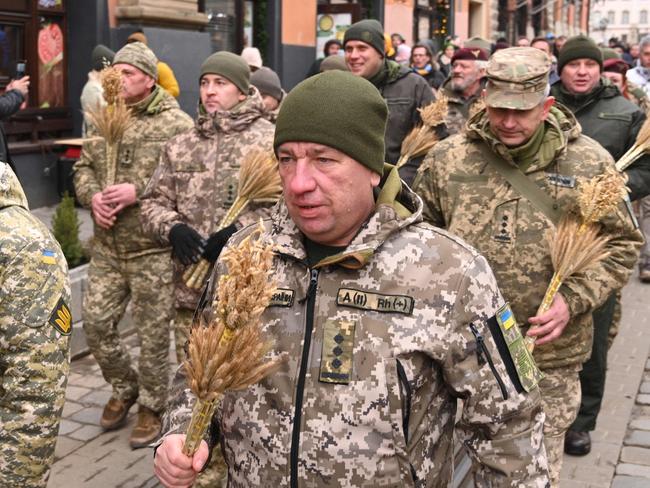
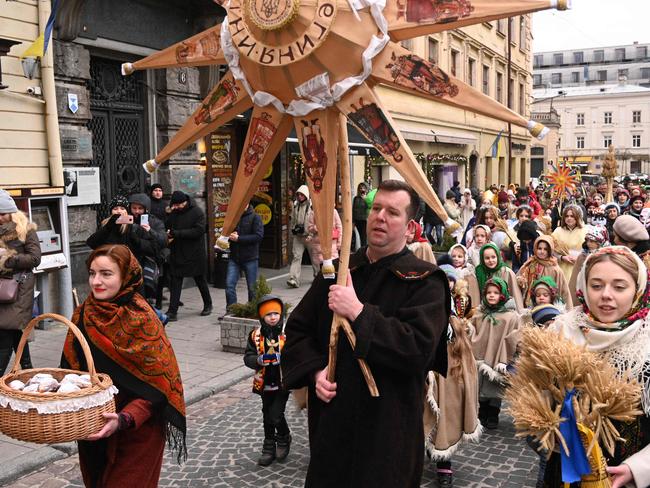
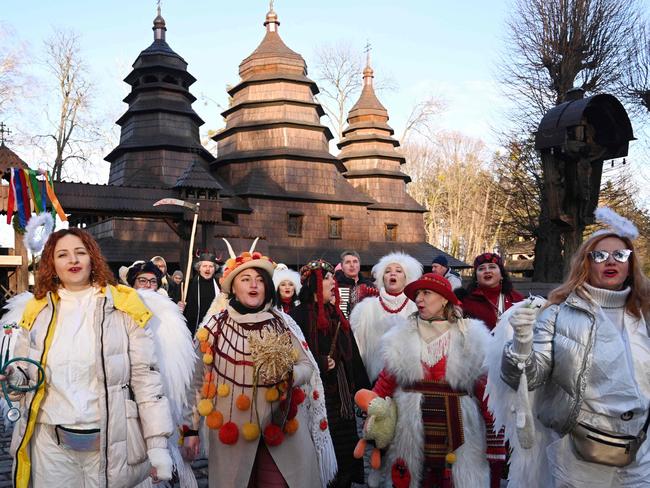
The Russian defence ministry insisted its forces were observing the unilateral ceasefire, which ended at 11pm in Kyiv. But they also said they had repelled attacks in eastern Ukraine and killed dozens of Ukrainian soldiers Friday.
Ukrainian authorities said only three people had been killed on Friday.
Putin’s order to stop fighting came days after Moscow suffered its heaviest casualties in a single attack yet, with Ukrainian strikes killing at least 89 troops in the eastern town of Makiivka.
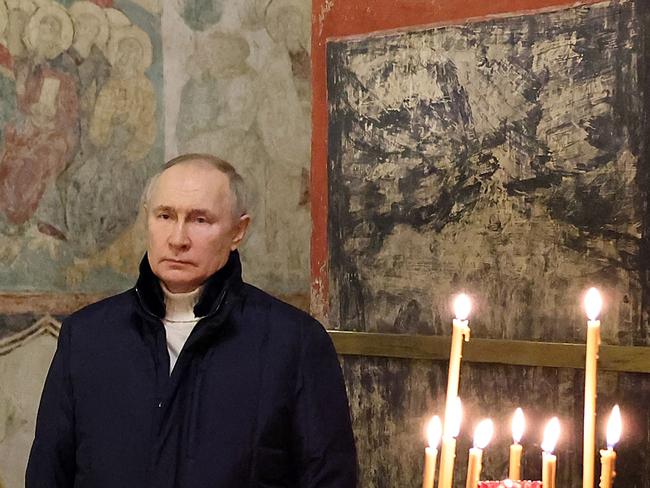
‘TRULY HISTORIC EVENT’
Ukrainian worshippers hailed the Kyiv mass.
“We’ve waited for this shrine for a long time,” Veronika Martyniuk told AFP outside the church.
“This is a truly historic event, which I think every Ukrainian has been waiting for. Especially after the beginning of Russia’s full-scale invasion,” said the 19-year-old head of a choir from the western city of Ivano-Frankivsk.
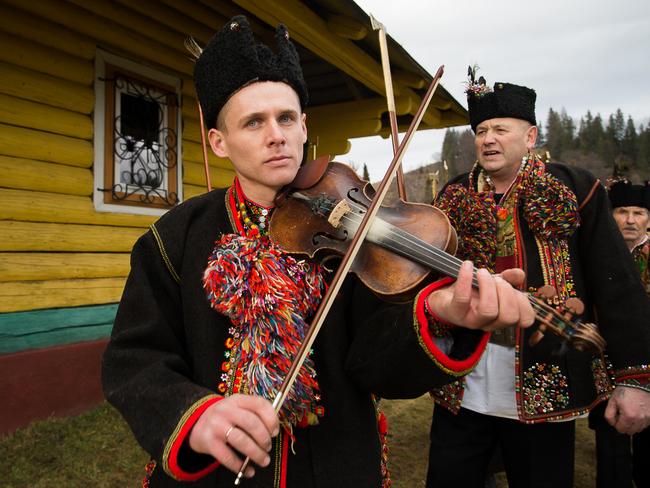
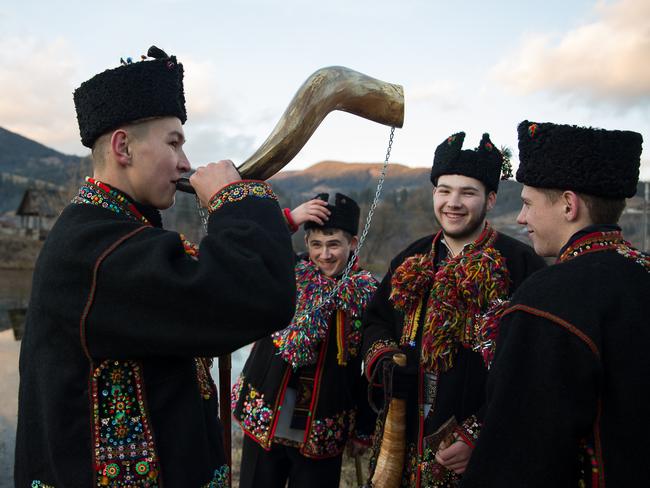
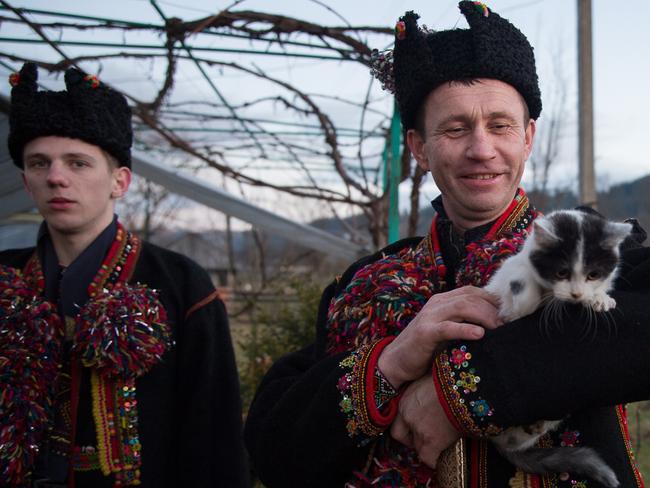
Security was tight: Worshippers had their passports checked and entered through metal detectors.
In the battered town of Chasiv Yar in eastern Ukraine, worshippers gathered in the basement shelter of an apartment building instead of their church down the street, wary of possible shelling.
The congregation numbered just nine, down from its pre-war total of 100, as many residents have fled to safer territory.
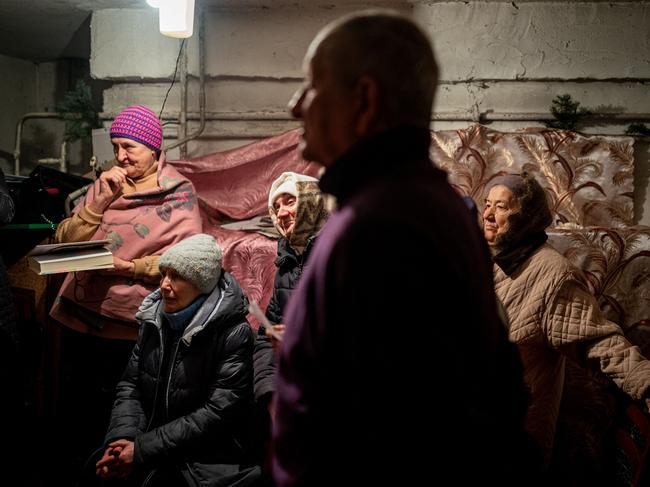
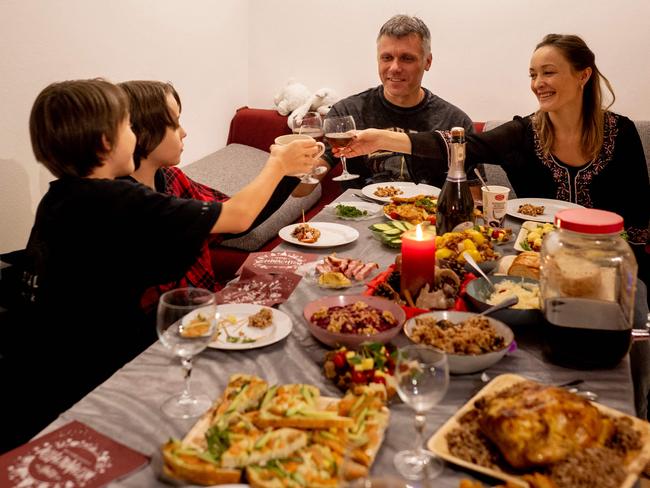
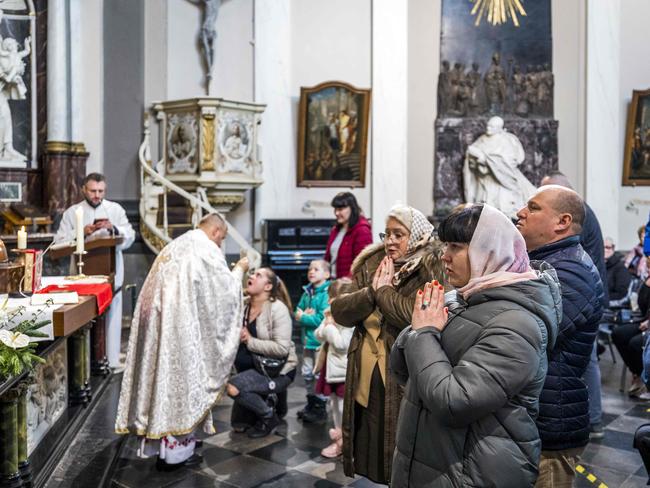
In both Russia and Ukraine, Orthodox Christianity is the dominant religion and used to be seen as one of the strongest bonds tying the two nations.
The Ukrainian Church was previously under Moscow’s jurisdiction but severed ties after Russia launched its invasion last February.
Ordinary Ukrainians have also largely turned their backs on the Russian Orthodox Church, whose leader Patriarch Kirill has backed the invasion.
The Orthodox Church of Ukraine was established in 2018 but remains unrecognised by the Moscow Patriarchate.
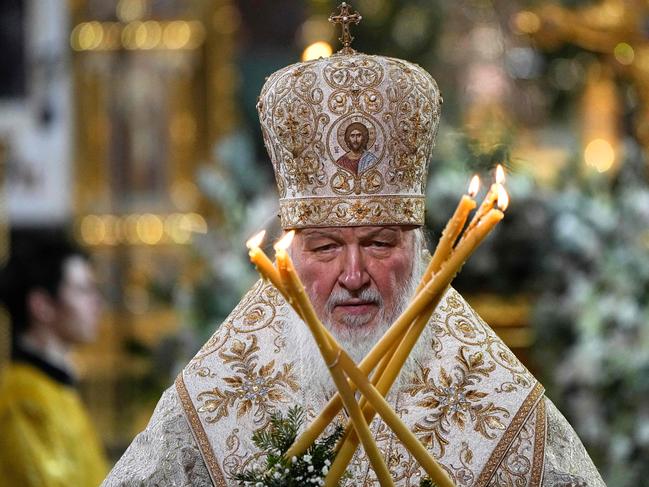
‘FAKE CEASEFIRE’
Presidential adviser Mykhailo Podolyak on Saturday accused Russian troops of firing along the entire contact line despite the announced ceasefire.
The general staff of Ukraine’s armed forces said Russia launched one missile strike and fired 20 rockets from multiple launchers over the past 24 hours.
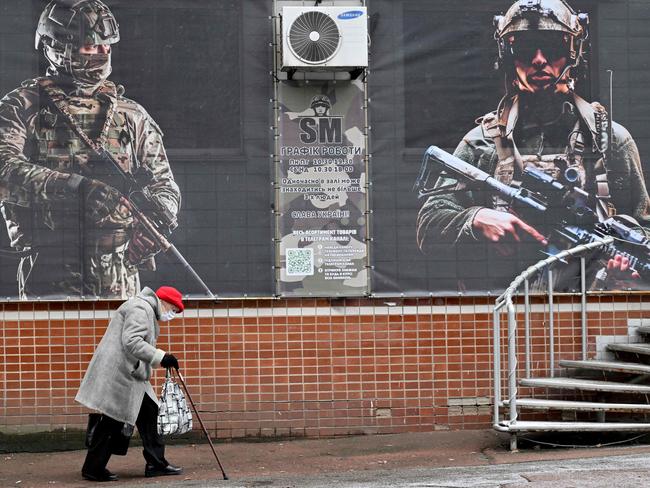
Two people died and seven were wounded in the eastern region of Donetsk, while in the southern region of Kherson one person was killed seven were injured Friday, said Kyrylo Tymoshenko, deputy head of Ukraine’s presidency.
“Peaceful settlements in the region were attacked with artillery, anti-aircraft guns, mortars and tanks,” said Yaroslav Yanushevych, the head of the Kherson regional administration.
In a message released by the Kremlin, Putin congratulated Orthodox Christians, saying the holiday inspired “good deeds and aspirations”.
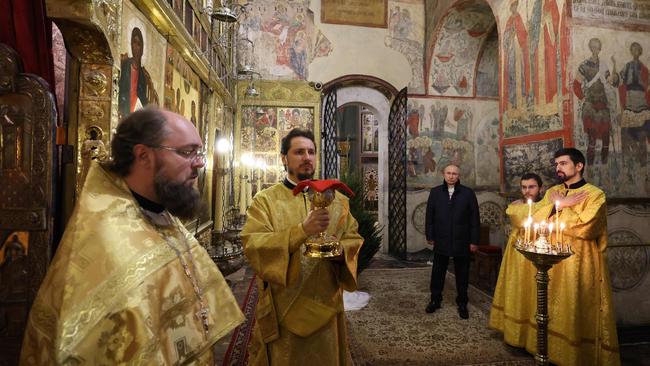
He also praised the Orthodox Church for “supporting our soldiers taking part in a special military operation”, using the Kremlin term for the offensive in Ukraine.
Meanwhile the British government announced it would host a meeting of justice ministers in March to discuss ways to support the International Criminal Court’s investigation of alleged war crimes in Ukraine.
In December ICC prosecutor Karim Khan, who will attend the March conference, urged the international community to support and fund it.
“We need the tools to do the job,” he said. “We do not have those tools.


